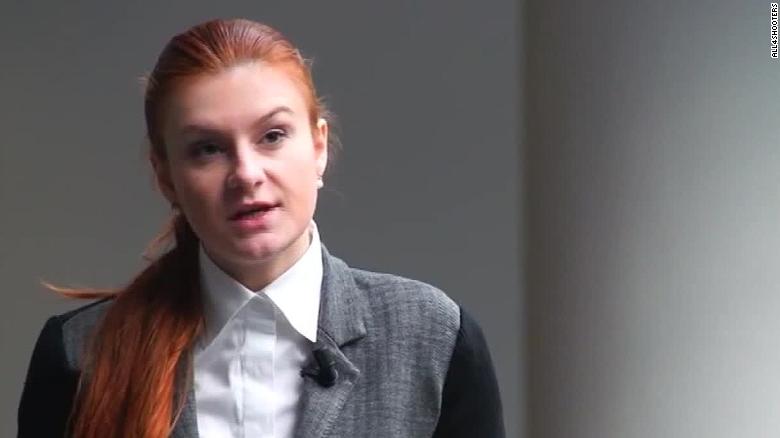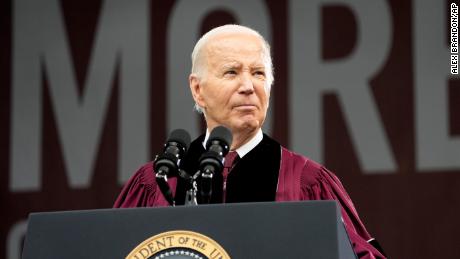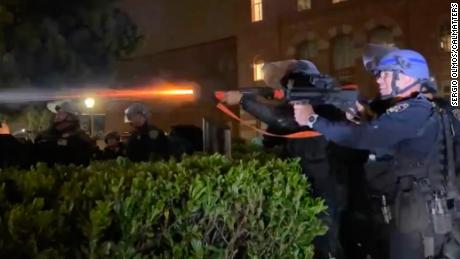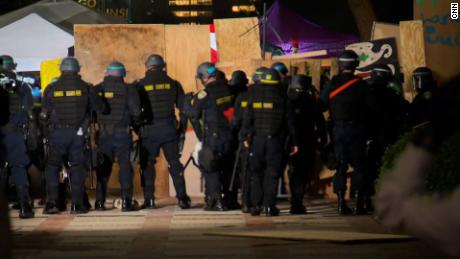Washington (CNN)A federal judge sentenced Russia national Maria Butina to 18 months in prison on Friday, after she pleaded guilty to trying to infiltrate conservative political circles and promote Russian interests before and after the 2016 presidential election.
She is the first Russian citizen convicted of crimes relating to the 2016 election, though her efforts to infiltrate Republican circles appeared to be separate from the Kremlin's sweeping election-meddling campaign detailed in special counsel Robert Mueller's report.
The 30-year-old gun rights enthusiast has been incarcerated since her arrest in July and will receive credit for the nine months previously served. She will be deported to Russia after serving her sentence.
"This was no simple misunderstanding by an overeager foreign student," Judge Tanya Chutkan said.
Chutkan said that Butina, who studied at American University in Washington, engaged in work on behalf of a Russian official that was "sophisticated" and "dangerous."
"The conduct was sophisticated and penetrated deep into political organizations," Chutkan said, siding with the government's sentencing recommendation and noting that Butina's actions took place as Russia was actively trying to interfere in the US democratic process.
Butina spoke for five minutes at Friday's hearing, her voice at times breaking, as she expressed regret for her crime and asked for forgiveness.
"I deeply regret this crime," Butina said. "Ironically it has harmed my attempts to improve relationships between the two countries."
"I came to the US not under orders but with hope," Butina said. "I sought to build bridges between my motherland and the country that I grew to love."
"Never did I wish to hurt anyone," Butina said.
Russian President Vladimir Putin on Saturday criticized the 18-month sentence as "arbitrary," according to state news agency RIA-Novosti.
"They took, grabbed her, put the girl in jail, but there was nothing to show for it," Putin said.
"So it would not look completely ridiculous, they issued that verdict, they stuck on 18 months to show that she was guilty of something," he added.
While prosecutors have admitted that Butina is not a spy in the traditional sense, they argued that her crime still could have jeopardized national security.
Butina pleaded guilty in December to one count of conspiracy to act as an agent of a foreign official. She admitted to using her contacts in GOP political circles, in the National Rifle Association and at the National Prayer Breakfast to influence US relations with Russia.
As part of her plea deal, Butina has cooperated extensively with the government. A source familiar with the situation said she primarily provided information about her boyfriend, GOP political operative Paul Erickson, who was allegedly involved in her scheme.
So far, Erickson has not faced charges in DC. Erickson was indicted in February on wire fraud and money laundering charges in a separate case in South Dakota. He pleaded not guilty to the federal charges.
'I still hold a whisper in my heart to one day return'
Prosecutors Friday brought a former senior FBI counterintelligence official to court who was prepared to testify about how Butina's actions posed "serious potential harm to the US."
The official, Robert Anderson, did not speak at the hearing but Chutkan made multiple references to a sworn affidavit he had submitted as she weighed the gravity of Butina's dealings.
An assistant US attorney, Erik Kenerson, said Butina worked with a Russian official as a "conduit" to send information to the Russian government, and listed several examples that the defense had not disputed of her reports, including a list of potential US secretary of state nominees she had sent back.
Kenerson also described how Butina would organize dinners with influential Americans to practice and "adjust her pitch" to draw out useful information.
Alfred Carry, one of Butina's attorneys, downplayed the significance of the dinners that Butina had organized.
"They were cultural exchanges" where people including artists and philanthropists gathered and "talked about peace," he said.
He said Butina, before her arrest, had planned to stay in the US and act as a "go-to consultant" on issues between the country and Russia.
In her statement to the court, Butina repeated those desires and said, "I still hold a whisper in my heart to one day return to this country, but I know this wish is only a dream."





















